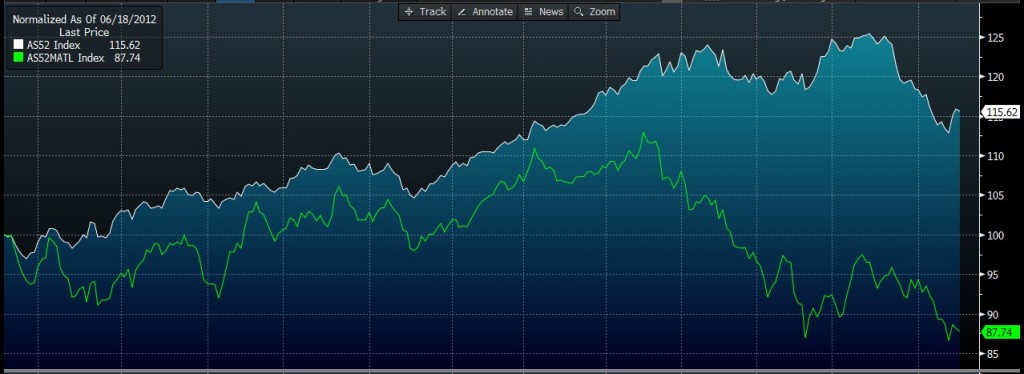
A good year for active fund managers
Some interesting results from the latest Mercer data on Australian fund manager performance: in the year to May, the average Australian share fund manager managed to beat the S&P/ASX300 Accumulation index by 2.6%. While it is common for the best performing managers to beat the index by large margins, it’s less common for the average fund manager to beat the index by this much. In the 3 years prior, for example, the average fund manager beat the index by a much smaller 0.6%.
Active equity investing tends to be something of a zero sum game – for every active investor who beats the average, there needs to be someone on the other side, doing worse than average. If the industry as a whole manages to beat the index, then who was on the other side of the ledger? It seems as though international and retail investors must have had a bad year for this to happen.
We’re going to go out on a bit of a limb and speculate that international funds managers approach the market in a similar way to domestic funds mangers, and that retail investors bore a lot of the pain this year. Furthermore, we’re going to suggest that the thing that caused them that pain was resources companies.
We say this because resources companies have been a stand-out disappointment in the last 12 months. The chart below tells the story. It plots the ASX300 index against the ASX300 Materials index. Given that materials make up a large slice of the ASX300 index, a divergence like this has the power to significantly affect the results for the year.
So we come to a conclusion that professional fund managers as a group don’t like to invest in resources. At least, not to the extent that retail investors do. This gels with our own thinking, which is that we only want to invest when we see quality companies at a discount to intrinsic value. In the case of resources companies, a lack of pricing power makes it hard to meet the quality test, and commodity price uncertainty makes it hard to be sufficiently confident about intrinsic value.
Both The Montgomery Fund and The Montgomery [Private] Fund have dramatically outperformed their benchmarks since inception. We should acknowledge, however, that recent performance would have been less dramatic if we had maintained a “market” exposure to resources.

Many investors have been attracted to low cost index solutions. I still invest in them however most index managers are supply for active performance. And the other way around. I would back a good active manager any day.
Great to hear from you Graham. Hope you are well!!!
The trouble is that with the wash of super money coming in each month, its invested immediately, not looking at the right timing.